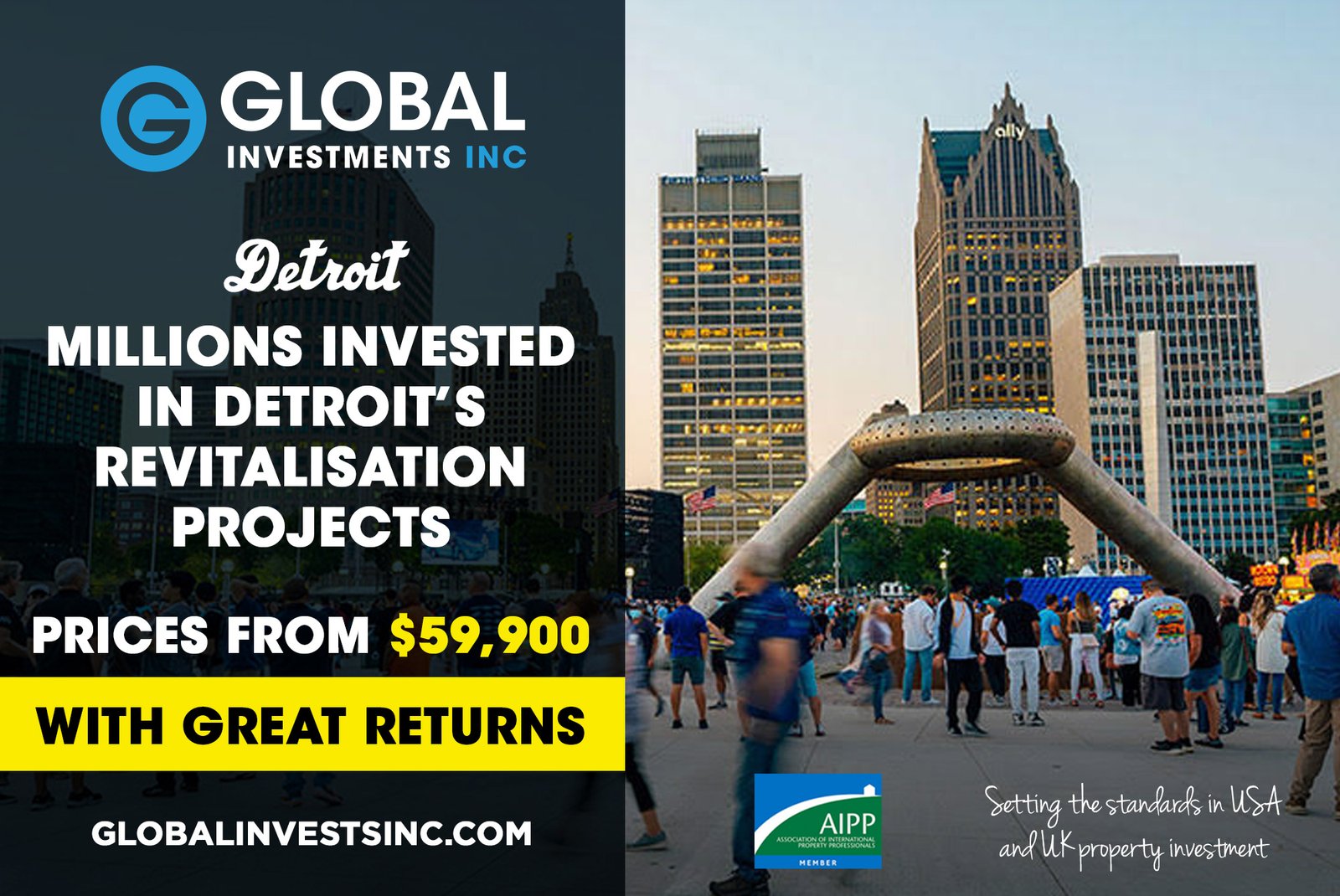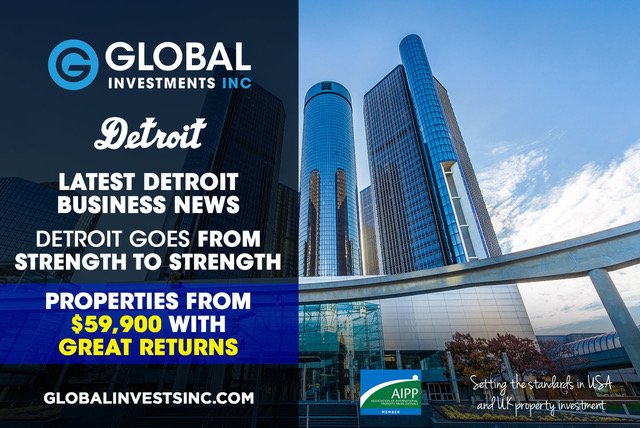
Here is why property prices are going to climb in 2025 in Detroit
Detroit’s Real Estate Revival: A Top Investment Opportunity for 2025 Detroit’s housing market is gaining momentum in 2025, making it one of the most promising destinations for property investors in the United States. With rising home values, increased buyer activity, and large-scale revitalization projects, the city is undergoing a significant transformation. Detroit’s comeback story is being written in bricks and beams, and the outlook for the housing and rental markets reflects growing confidence and opportunity. Home Prices Trending Upward As highlighted in the latest housing forecast from WhatsMyCashflow, multiple industry leaders—including Zillow, Redfin, and Realtor.com—predict that Detroit’s home prices will continue to rise in 2025. These projections point to year-over-year growth between 3% and 6% depending on the source. This upward trend is fueled by a combination of increasing demand, a limited supply of homes, and growing interest from out-of-state investors. This sustained appreciation in home prices makes Detroit an ideal market for property investors looking to build equity over time. The affordability of Detroit real estate relative to other U.S. cities also means that entry costs are lower, yet the potential for gains remains strong. Rental Market Strength and High Demand Detroit’s rental market is equally robust, offering excellent opportunities for landlords and buy-to-let investors. The city continues to attract tenants due to its relatively low cost of living, improving amenities, and expanding employment opportunities. Vacancy rates have remained stable, and average rental rates are on the rise, especially in neighborhoods seeing redevelopment and infrastructure improvements. For property investors, the appeal lies in both cash flow and appreciation. Detroit offers some of the highest rental yields in the country, thanks to the city’s relatively low property acquisition costs and increasing rental demand. This makes it feasible to generate positive monthly income while also enjoying long-term property value appreciation. New Developments and Revitalization Projects Beyond the numbers, what makes Detroit especially attractive in 2025 is the level of investment going into rebuilding the city. Major development projects are reshaping Detroit’s landscape and breathing new life into historic neighborhoods. For example, the $73 million redevelopment of the Villages of Parkside is set to deliver over 200 new mixed-income housing units, with more phases to follow. The Hudson’s Site project downtown—featuring a new skyscraper with residential, office, and retail components—is poised to become a new landmark and further elevate property values in the central business district. In addition, community-driven projects such as La Joya Gardens in Southwest Detroit and the transformation of the Higginbotham School into art-focused residences underscore the city’s commitment to creating inclusive, sustainable living spaces. These developments are attracting both residents and real estate investors who are eager to participate in Detroit’s long-term growth. Economic Indicators Supporting Growth Detroit’s strengthening economy adds further momentum to the housing market. Anchored by industries such as automotive, healthcare, logistics, and tech startups, Detroit has diversified beyond its traditional roots. The job market is rebounding, and large employers are continuing to invest in the city’s workforce and infrastructure. Additionally, programs like the Detroit Housing for the Future Fund and other public-private partnerships are stimulating new housing construction, promoting affordability, and supporting the city’s population growth. These efforts are directly linked to improving housing availability and stabilizing rental prices—factors that positively impact investors, tenants, and homeowners alike. Best Neighborhoods for Investment Detroit’s vast geography means that market conditions can vary by neighborhood. Some of the top areas for property investment in 2025 include: Bagley – Known for its historic homes and proximity to the University District. East English Village – A strong community with attractive single-family homes. Midtown – Continues to be a cultural and commercial hub with strong rental demand. Southwest Detroit – Booming with new housing developments and community investment. Each of these neighborhoods offers its own mix of affordability, appreciation potential, and tenant demand. Investors can align their strategies based on whether they are targeting long-term rentals, short-term appreciation, or renovation opportunities. Why Now is the Time to Invest Detroit is no longer just a comeback story—it’s a real estate success in the making. The city’s current momentum presents a unique window for investors to enter the market before prices rise further. With a clear upward trajectory in home values, high rental yields, and significant public and private investment, the outlook is very positive for both short-term gains and long-term wealth building. For investors looking for a market with strong fundamentals, affordable entry points, and real potential for appreciation and cash flow, Detroit stands out as a top-tier option in 2025. Conclusion The Detroit housing market is experiencing a revival—backed by data, development, and demand. Rising home prices, a booming rental sector, and strategic investment initiatives all make Detroit a hotspot for real estate investors this year. Whether you’re considering a single-family rental, a renovation project, or multifamily housing, Detroit’s diverse property landscape offers something for every investor. With the right strategy and timing, Detroit in 2025 offers an excellent opportunity to grow your portfolio and participate in one of America’s most dynamic urban turnarounds.








